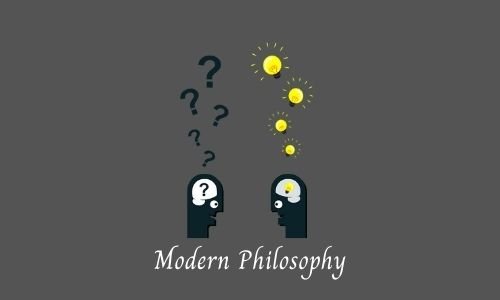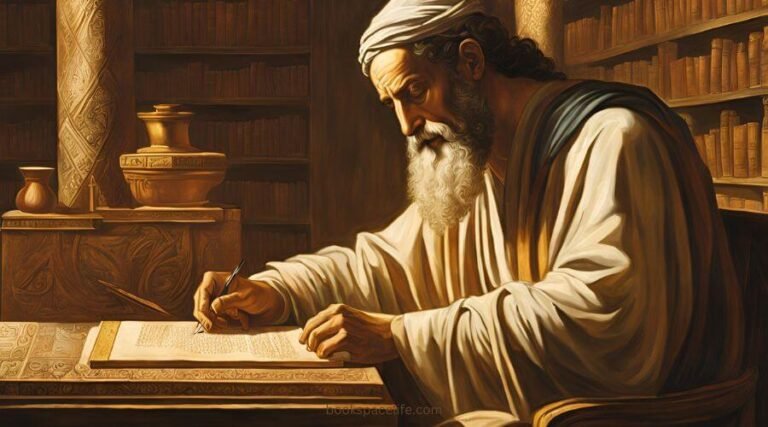Philo of Alexandria
Menachem Mendel Schneerson: The Visionary Leader Who Shaped Modern Jewish Thought and Community
Rabbi Menachem Mendel Schneerson (1902 – 1994 CE), often referred to simply as “the Rebbe,” is one of the most influential Jewish philosophers and leaders of the 20th century.
Known for his profound wisdom, far-reaching vision, and the ability to connect with people from all walks of life, Schneerson served as the seventh leader of the Chabad-Lubavitch movement.
Through his unique blend of mystical thought, intellectual rigor, and humanitarianism, he transformed Chabad from a relatively small Hasidic sect into a globally recognized force in Jewish outreach and community building.
This post delves into Schneerson’s life, philosophy, influence, and enduring legacy.
Table of Contents
(1) Early Life and Education
Menachem Mendel Schneerson was born on April 18, 1902, in the small Ukrainian town of Nikolaev.
His father, Rabbi Levi Yitzchak Schneerson, was an esteemed Kabbalist and scholar, and his mother, Rebbetzin Chana Schneerson, was known for her compassion and intellect.
Raised in a family that deeply valued both spirituality and scholarship, Schneerson was exposed to the profound texts and traditions of Jewish mysticism from an early age.
From childhood, Schneerson displayed an exceptional intellectual capacity, reportedly mastering much of the Talmud by his teenage years.
His early education was steeped in Talmudic study, Jewish mysticism, and Kabbalistic teachings.
Recognizing his intellectual potential, his parents encouraged him to study broadly and develop his own understanding of Jewish law and philosophy.
In the early 1920s, with anti-Semitic persecution escalating in the Soviet Union, Schneerson moved to Berlin, where he enrolled at the University of Berlin to study philosophy and mathematics.
This formal secular education was rare for someone in the Hasidic world, but it was a testament to Schneerson’s thirst for knowledge and his belief in the importance of engaging with the wider intellectual world.
His studies continued in Paris, where he studied at the Sorbonne and furthered his understanding of engineering.
These years in Europe were also formative in terms of his exposure to secular society, which later influenced his open and inclusive approach to Judaism.
(2) Marriage and Journey to America
In 1928, Schneerson married Chaya Mushka Schneerson, the daughter of Rabbi Yosef Yitzchak Schneersohn, the sixth leader of the Chabad-Lubavitch dynasty.
This marriage further deepened his connection to the Chabad movement, though he did not yet play a formal leadership role.
In 1941, with World War II ravaging Europe, Schneerson and his wife fled to the United States, settling in the Crown Heights neighborhood of Brooklyn, New York.
In America, Schneerson worked quietly for a time, assisting his father-in-law with administrative work for Chabad.
He maintained a low profile, preferring to focus on his studies and writings. However, upon the passing of Rabbi Yosef Yitzchak in 1950, Schneerson was called upon to assume leadership of the Chabad-Lubavitch movement, a role he initially resisted.
After a year of reflection, he accepted the position in 1951, becoming the seventh Lubavitcher Rebbe.
(3) Philosophy and Core Teachings
Schneerson’s philosophy combined traditional Jewish teachings with a progressive outlook on contemporary issues, and his teachings emphasize the centrality of Jewish spirituality, education, and the responsibility of each individual to better the world.
His thought can be broadly divided into several key themes:
(i) The Divine Potential of Every Individual
One of Schneerson’s core teachings is that each person, regardless of background or beliefs, possesses a divine soul with infinite potential.
This concept, rooted in Hasidic thought, emphasizes that every person is a reflection of God’s light and has a unique role in the world.
Schneerson believed that by nurturing the soul through education, prayer, and good deeds, individuals could reach their fullest potential and positively impact those around them.
This belief fueled Schneerson’s passion for outreach, which became a hallmark of the Chabad movement.
He taught that every Jew, no matter their level of observance or familiarity with tradition, is connected to their Jewish heritage and can access their own spiritual depths.
This approach was radically inclusive and revolutionary in the Jewish world, encouraging the establishment of Chabad centers worldwide to connect people with their heritage.
(ii) The Concept of Moshiach (Messiah) and Redemption
Central to Schneerson’s teachings was the idea of Moshiach, or the Messianic age.
He believed that humanity could actively participate in the process of bringing about this redemptive era by performing good deeds and elevating the spiritual awareness of the world.
Schneerson viewed the Messianic age not just as a distant event but as an immediate possibility, achievable through collective spiritual transformation and individual dedication to ethical living.
This emphasis on Moshiach led to an emphasis on “living with Moshiach,” an idea that called on Jews to act in ways that would bring the world closer to redemption.
Schneerson encouraged his followers to view daily actions as opportunities to foster peace, unity, and divine awareness, thereby making the world a more godly place.
(iii) Jewish Outreach and Education
Schneerson saw Jewish education as the foundation of Jewish identity and continuity, and he stressed the need for Jewish education and engagement across all age groups and backgrounds.
Under his leadership, Chabad established numerous schools, yeshivot (Jewish religious schools), and educational programs.
His pioneering efforts to engage Jewish youth led to the establishment of Chabad on college campuses, a revolutionary idea that brought Jewish life and learning to thousands of students worldwide.
The “Chabad House” concept, which began under Schneerson’s leadership, spread rapidly, with Chabad centers established across cities, university campuses, and communities around the globe.
These centers became hubs of Jewish education, cultural connection, and spiritual guidance, welcoming Jews of all backgrounds and fostering a sense of belonging.
(iv) Humanitarianism and Social Responsibility
Schneerson’s teachings extended beyond the Jewish community.
He was a vocal advocate for humanitarian causes, championing education, social justice, and ethical conduct as universal values.
He believed in the power of individuals to contribute to the betterment of society, and he saw Torah principles as the foundation for a just and compassionate world.
Schneerson’s philosophy encouraged community service, charity, and acts of kindness, which he saw as pathways to creating a more unified and ethical society.
(4) Influence and Legacy
Under Schneerson’s leadership, Chabad grew from a small Hasidic sect to an internationally recognized movement with a presence in over 100 countries.
His influence was felt in numerous realms, from religious scholarship to community building, education, and humanitarian work.
The Rebbe’s teachings inspired generations of Jews to embrace their heritage, connect with one another, and engage with the world from a place of faith and purpose.
Schneerson’s outreach efforts and commitment to Jewish continuity led to the establishment of over 5,000 Chabad centers globally, each serving as a community hub for learning, celebration, and service.
His emphasis on education and the accessibility of Jewish knowledge has had a lasting impact, and Chabad’s educational institutions continue to shape Jewish education today.
Schneerson’s teachings also reached non-Jewish audiences, as he encouraged people of all backgrounds to embrace ethical living and the values of kindness, justice, and compassion.
Through the “Seven Noahide Laws,” a set of ethical principles rooted in Jewish tradition, Schneerson communicated a universal moral code that he believed could foster peace and unity in the world.
The Rebbe’s legacy is preserved through the continued growth of the Chabad-Lubavitch movement, which has become synonymous with Jewish outreach and education.
His influence also extends to political leaders, scholars, and social activists who have drawn inspiration from his teachings on morality, social responsibility, and global betterment.
(5) Conclusion
Menachem Mendel Schneerson’s life and teachings continue to inspire and shape the Jewish world and beyond.
His philosophy is a testament to the power of inclusivity, community, and the potential for personal and collective transformation.
Through his work, Schneerson taught that each individual has a unique role in the divine plan, and that through acts of kindness, learning, and spiritual growth, the world can be transformed.
The Rebbe’s profound legacy is evident in the Chabad-Lubavitch movement’s enduring commitment to outreach, education, and humanitarianism.
His vision of a world united by compassion, ethical behavior, and divine awareness remains a guiding light for many.
Schneerson’s emphasis on the divine potential within each individual and the role of humanity in bringing about redemption continue to resonate deeply, reminding us of our power to create positive change and bring light into the world.







